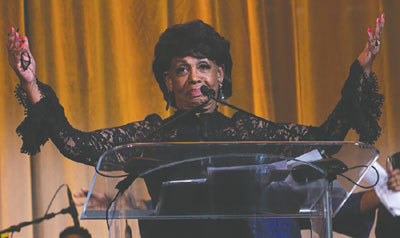

NFL Anthem Protest Policy and Faux Patriotism
By Laura Finley and Matthew Johnson
Like many, we are fundamentally opposed to the NFL’s new policy requiring players who are on the field to stand for the national anthem or remain in the tunnel or locker room. Teams can be fined if players or any team personnel do not stand for the anthem, including attempts to sit or kneel, as was the movement started by ex-49ers quarterback Colin Kaepernick as a means of protesting police harassment of people of color.
Ironically, Mr. Kaepernick and former teammate/fellow protester Eric Reid, who is only recently getting attention because it has become clear that he is also on the NFL’s enemies list, chose to kneel rather than sit or hide in the locker room as a show of respect. It’s very hard to understand the vitriolic opposition to this modest protest given that Kaepernick’s own explanation of it could only be offensive to a racist: He did not want to honor the symbol of a country (flag) that oppresses Black people and other people of color. Even if you disagree with the content or format of the message, it’s not an anti-American message. It was never about disrespecting the military. That it was ever equated with the military is deeply problematic.
Equating the protests with a lack of patriotism is tragically false. Nonviolent protest is and should be the hallmark of patriotism. Although this is not a First Amendment issue, which only protects people from governmental intrusion of their Constitutional rights (versus that of an employer), it is still wrong to blackball black NFL players for standing up for black rights — and then lying about it by saying it was about their inability to play football at the minimum level required by all 32 NFL teams. This is the subject of Kaepernick’s pending grievance. If this wasn’t enough, the NFL has chosen to escalate and expand the conflict by putting every NFL player on the defensive through this new, Trump-inspired policy that even Trump has spoken out against, albeit for not being harsh enough. Trump has even doubled-down on his anti-NFL rhetoric, when he disinvited the Super Bowl champion Philadelphia Eagles from appearing at the White House because they disagree with his stance on this issue.
One of the problems is that this policy was negotiated with no input from the NFL Players Association (NFLPA). It is part of the game operations manual and thus not subject to collective bargaining. The previous policy only specified that players “should” stand — not that they had to or face sanctions. The NFLPA is understandably upset about being left out of the discussion.
Second, the notion that because some of these players command big salaries (albeit for a very short career), their voices should be silenced, is simply absurd. As some scholars and commentators have argued, this is little more than Plantation-politics. How dare those “uppity” (read, successful) black males dare to critique this amazing country that “allowed” them to succeed, aka, prospered again on their backs. Yet President Trump has championed such a view, tweeting in September 2017: “If a player wants the privilege of making millions of dollars in the NFL, or other leagues, he or she should not be allowed to disrespect our Great American Flag (or Country) and should stand for the National Anthem,” Trump tweeted on Saturday. “If not, YOU’RE FIRED. Find something else to do!”
But, more than the issue of representation and the false equating of standing for the anthem to true patriotism is the concern that we are really asking all the wrong questions here. Instead of debating the new NFL policy, we should be wondering why the anthem is played at NFL games in the first place.
Saluting the flag is not something one is required to do to attend a concert. Broadway shows do not require it. One can go to a movie and not have to stand and salute. Eating out, another source of entertainment for many Americans, requires no standing, saluting, or singing of the Star Spangled Banner. All of these are private businesses –the same as the NFL. In sum, all other manner of private entertainment is entirely separated from worship of the flag. Why, then, does attending a professional football game (and basketball and other sports, for that matter) require such supposed allegiance?
The answer, it seems, can be found, as it often the case, by following the money. The NFL receives a lot of money to “honor our troops,” and thus is under pressure from conservative forces to curtail what they believe to be behavior critical to the country’s militarism. In 2016, the NFL actually agreed to repay the Defense Department $723,724 it had taken to honor the military at games. Arizona Senators John McCain and Jeff Flake complained about the “paid patriotism” and called it wasteful spending. A review of contracts spawned by McCain’s and Flake’s concerns found $6.1 million in contracts paid to the NFL between 2012 and 2015 to promote patriotism. In 2015, the Department of Defense gave millions to the NFL for flyovers, color guard ceremonies, flag unfurlings, and national anthem performances.
Standing for the anthem is a relatively new tradition in the NFL, with players only “encouraged” to stand for it beginning in 2009. Before that they would often stay in the locker room — which they can do now anyway under the new policy. It is a change that is very clearly tied to the money. Critics contend it is not about patriotism at all but rather a marketing ploy to get people to buy jerseys, water bottles, balls, and other items with nationalistic symbolism.
So, while people are understandably upset with the policy and how it was derived, perhaps it is more important to push back against the invasion of militarism into our private spaces. This is similar to how militarized police abuse people of color across the United States – the very issue that Kaepernick and his supporters knelt against.
Laura Finley, Ph.D., teaches in the Barry University Department of Sociology & Criminology and is syndicated by PeaceVoice. Matt Johnson is an author and activist.





Be the first to comment